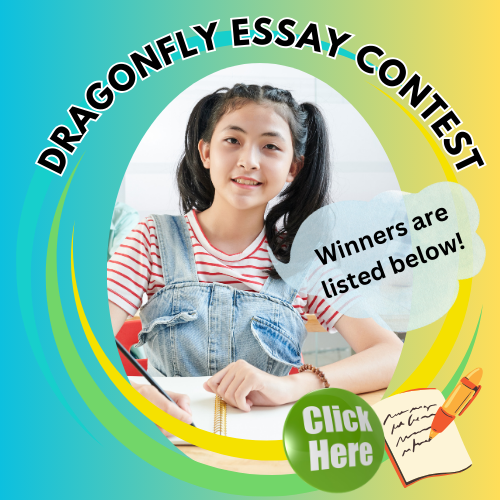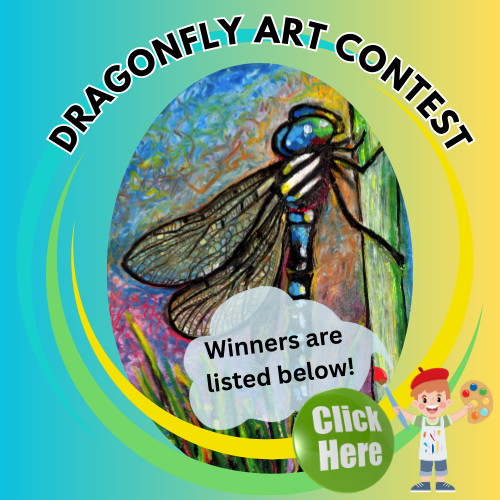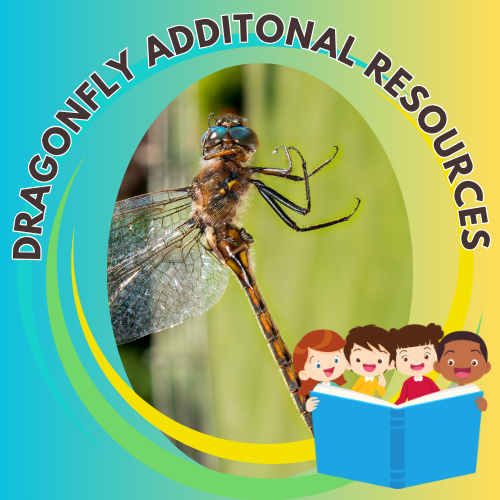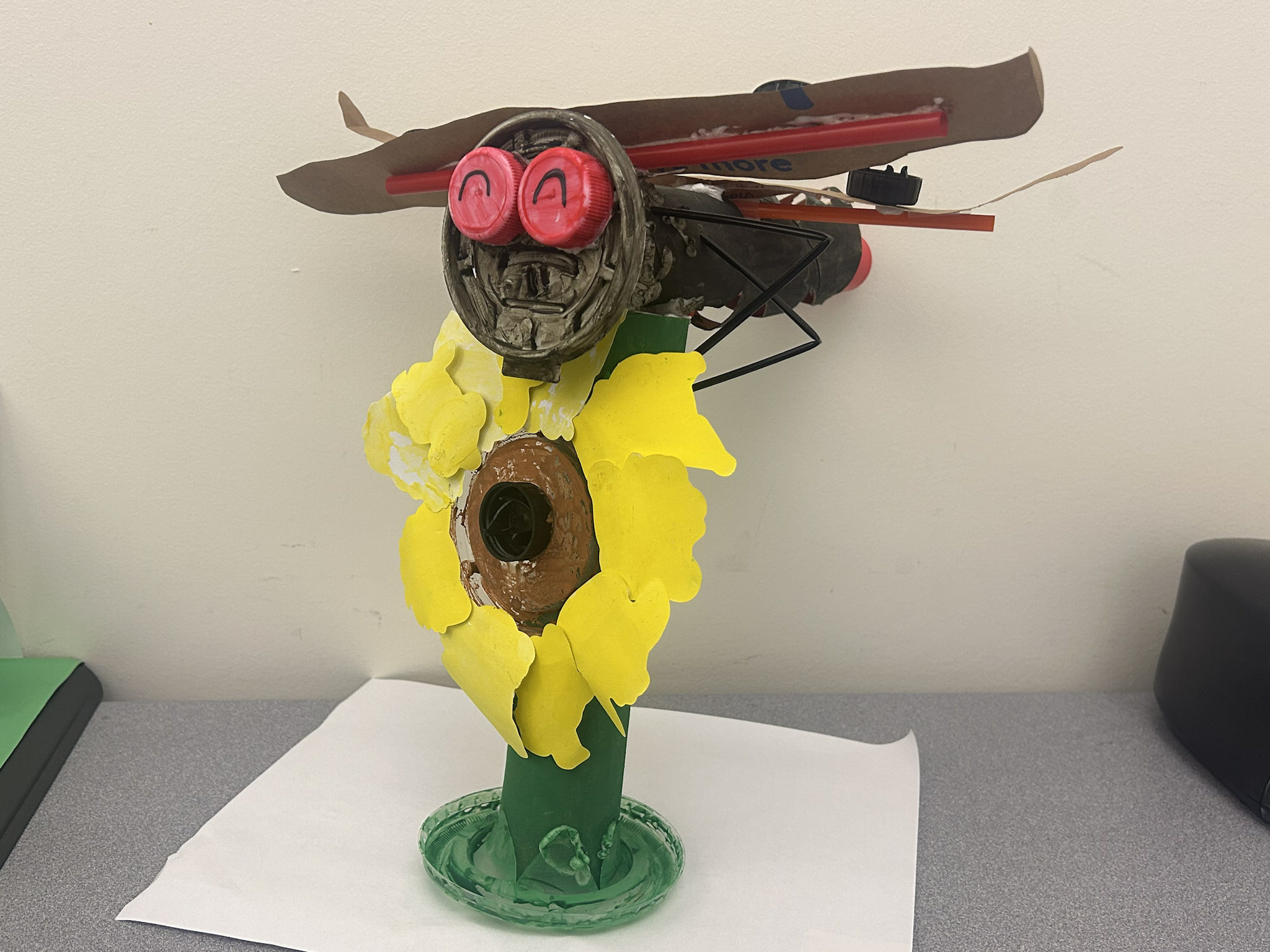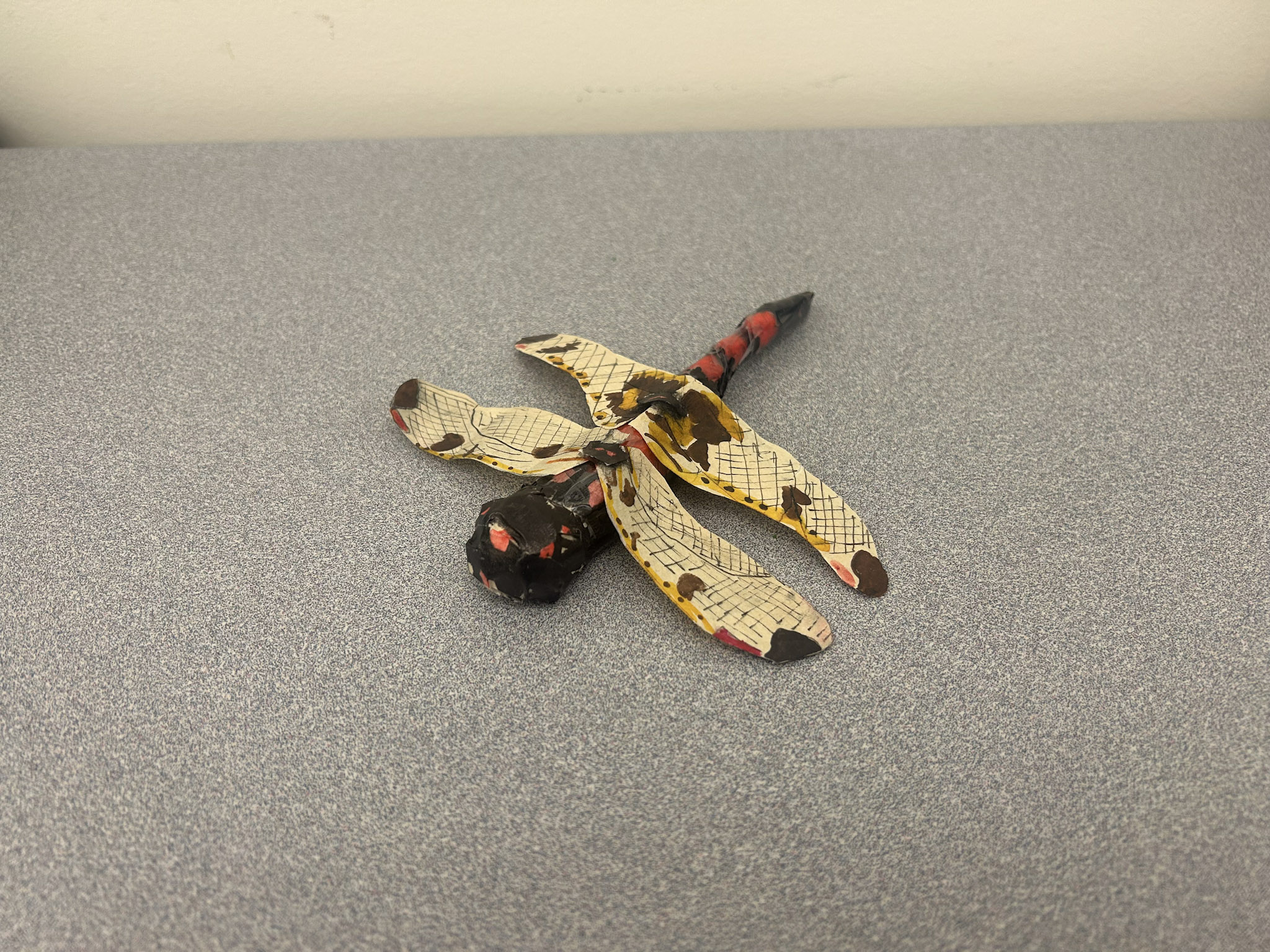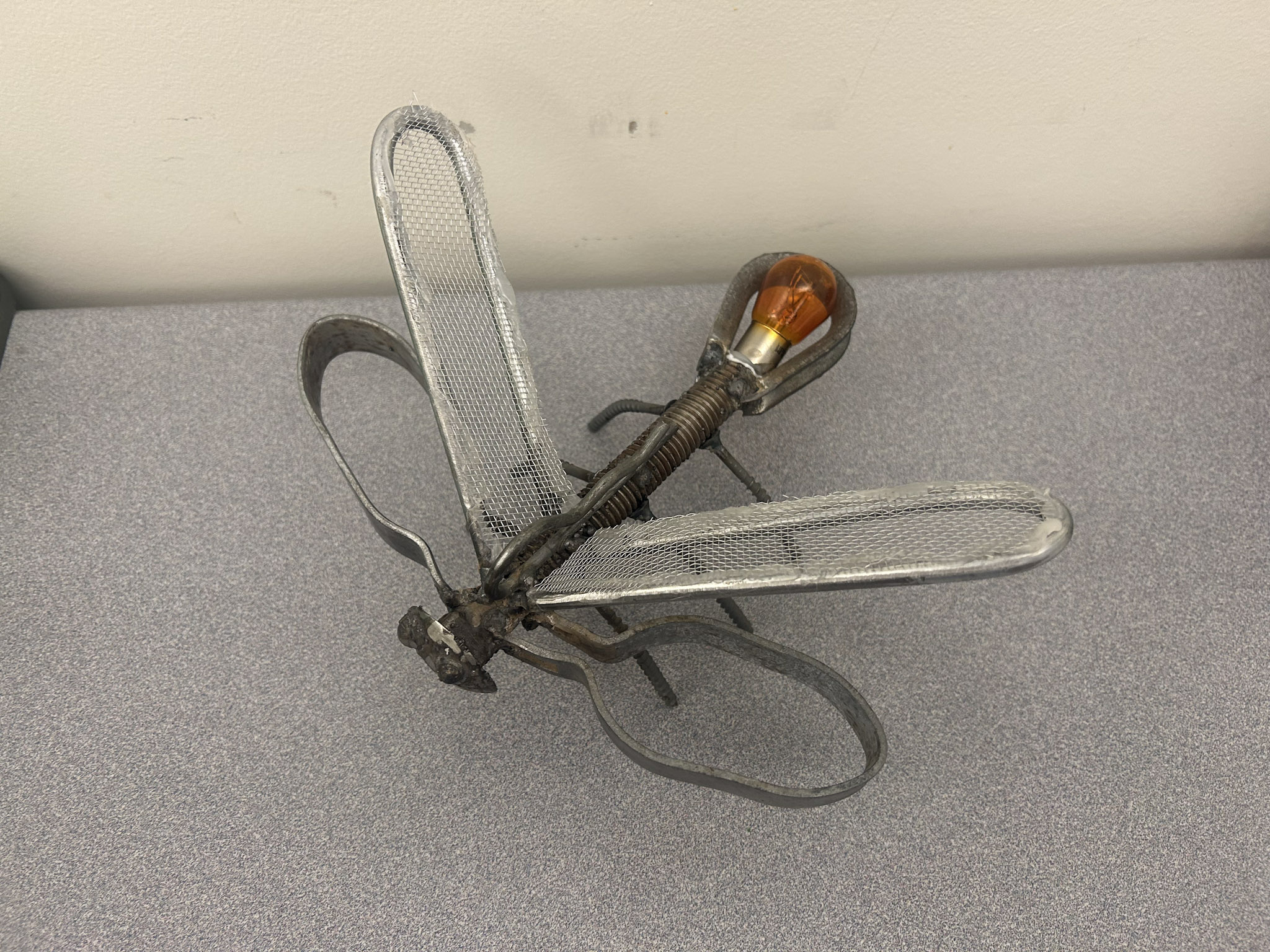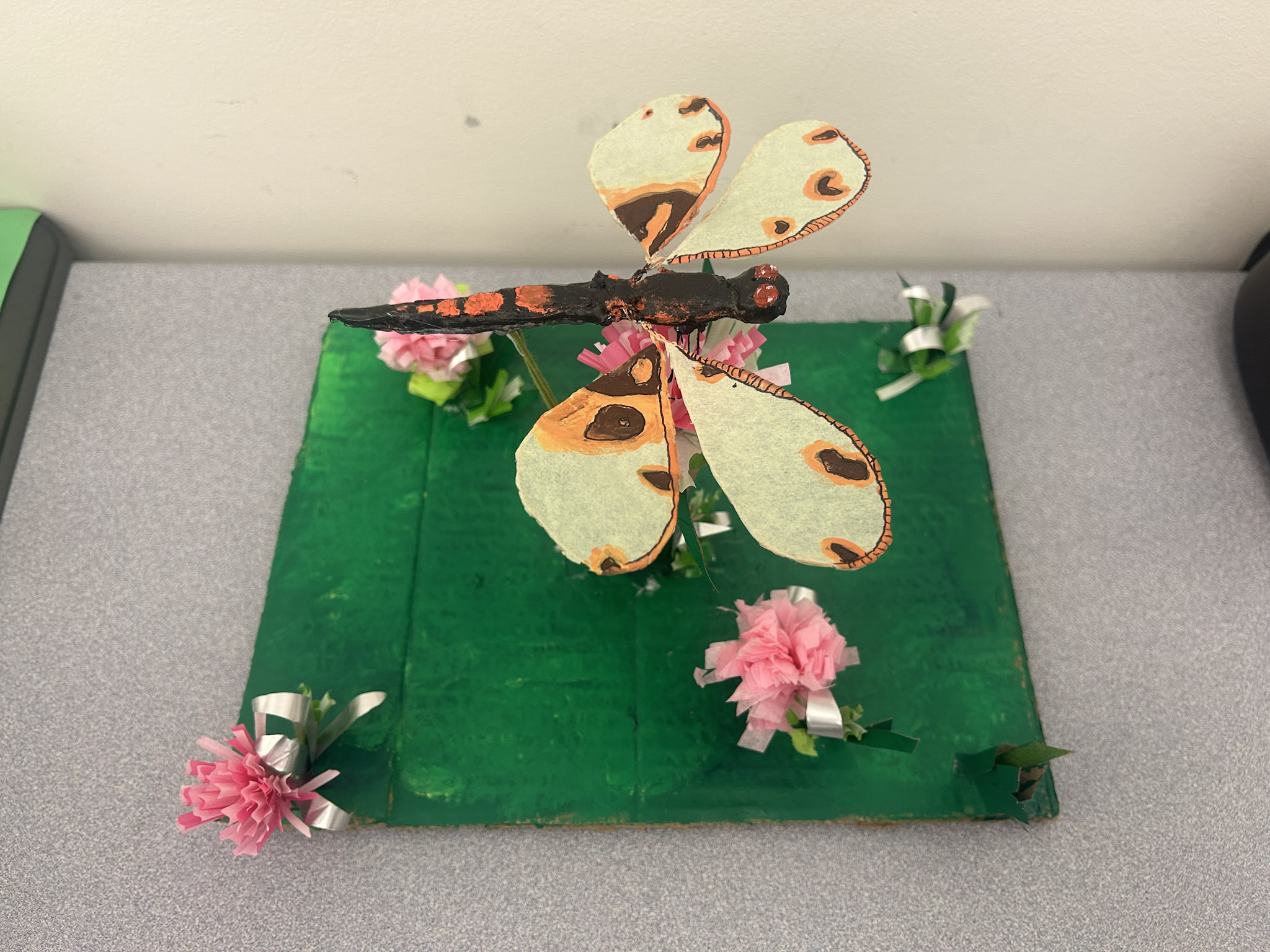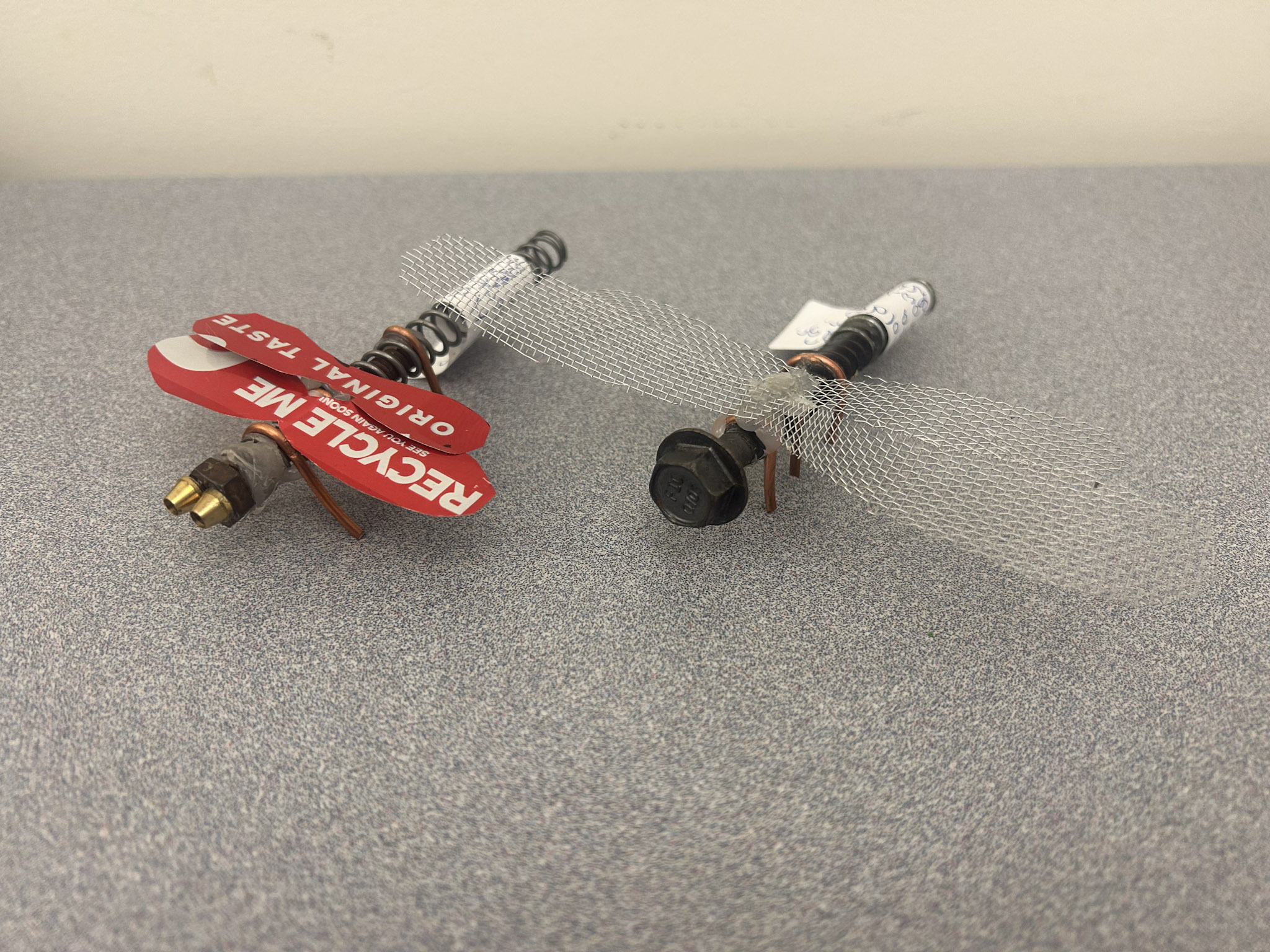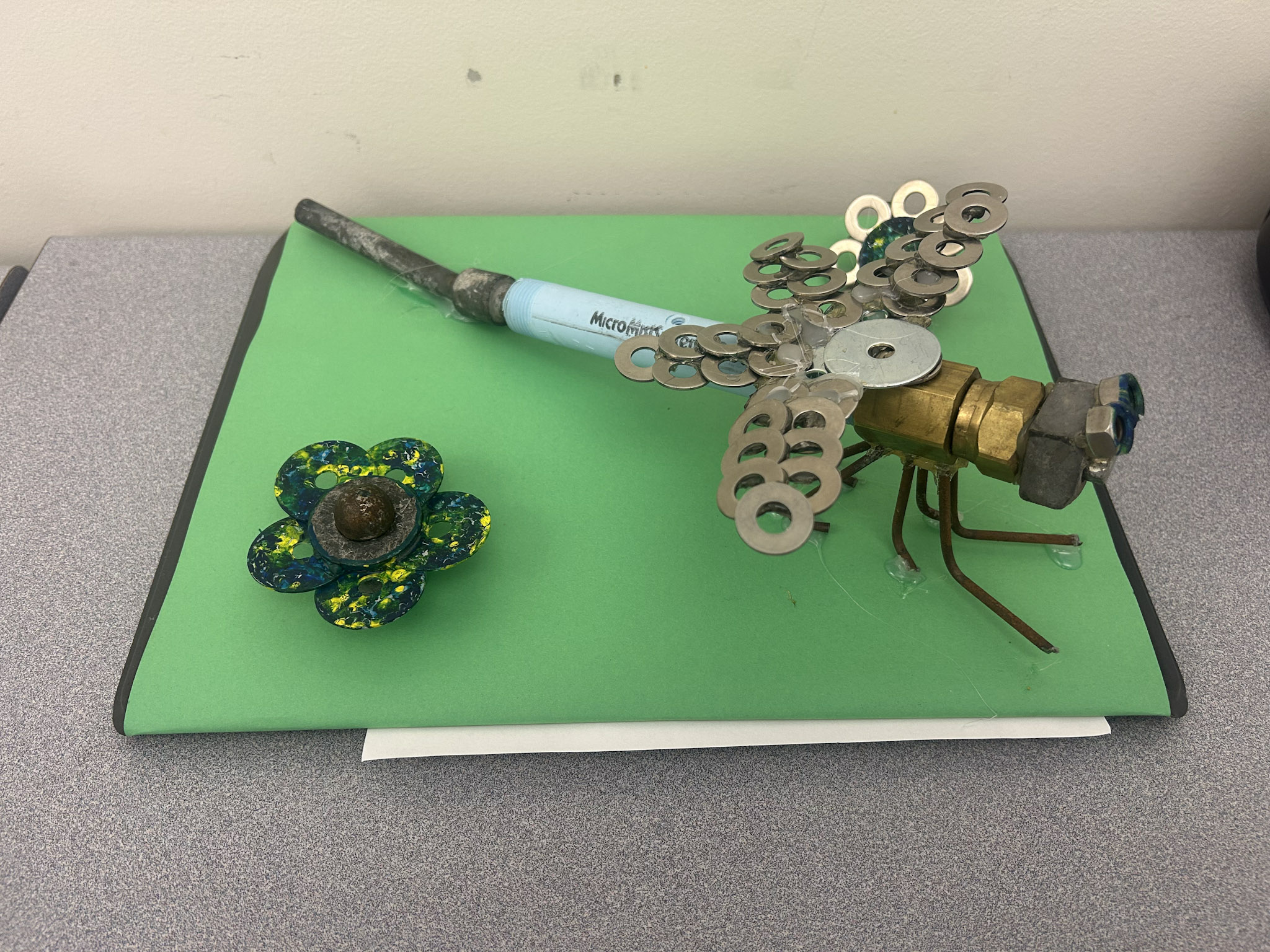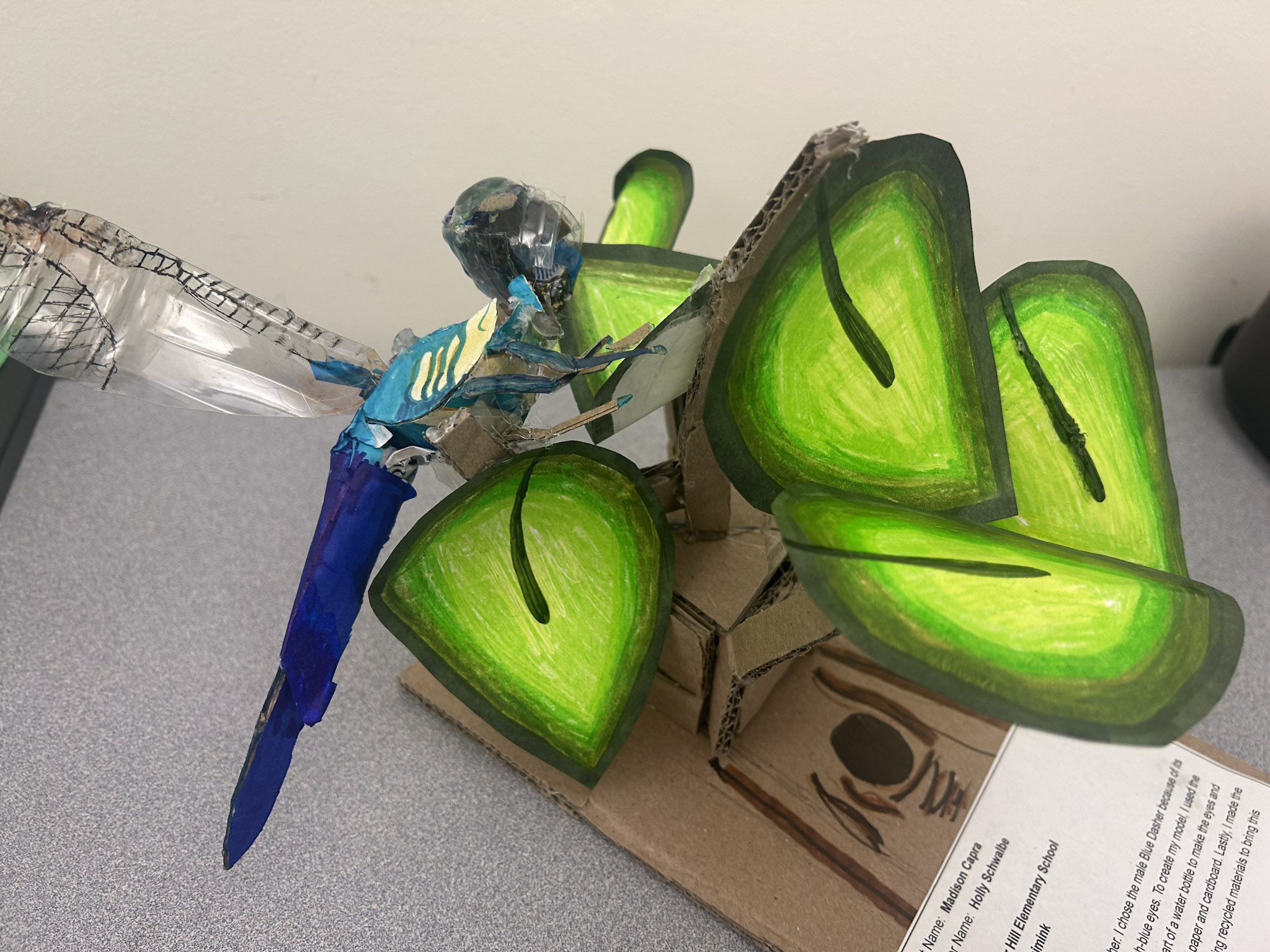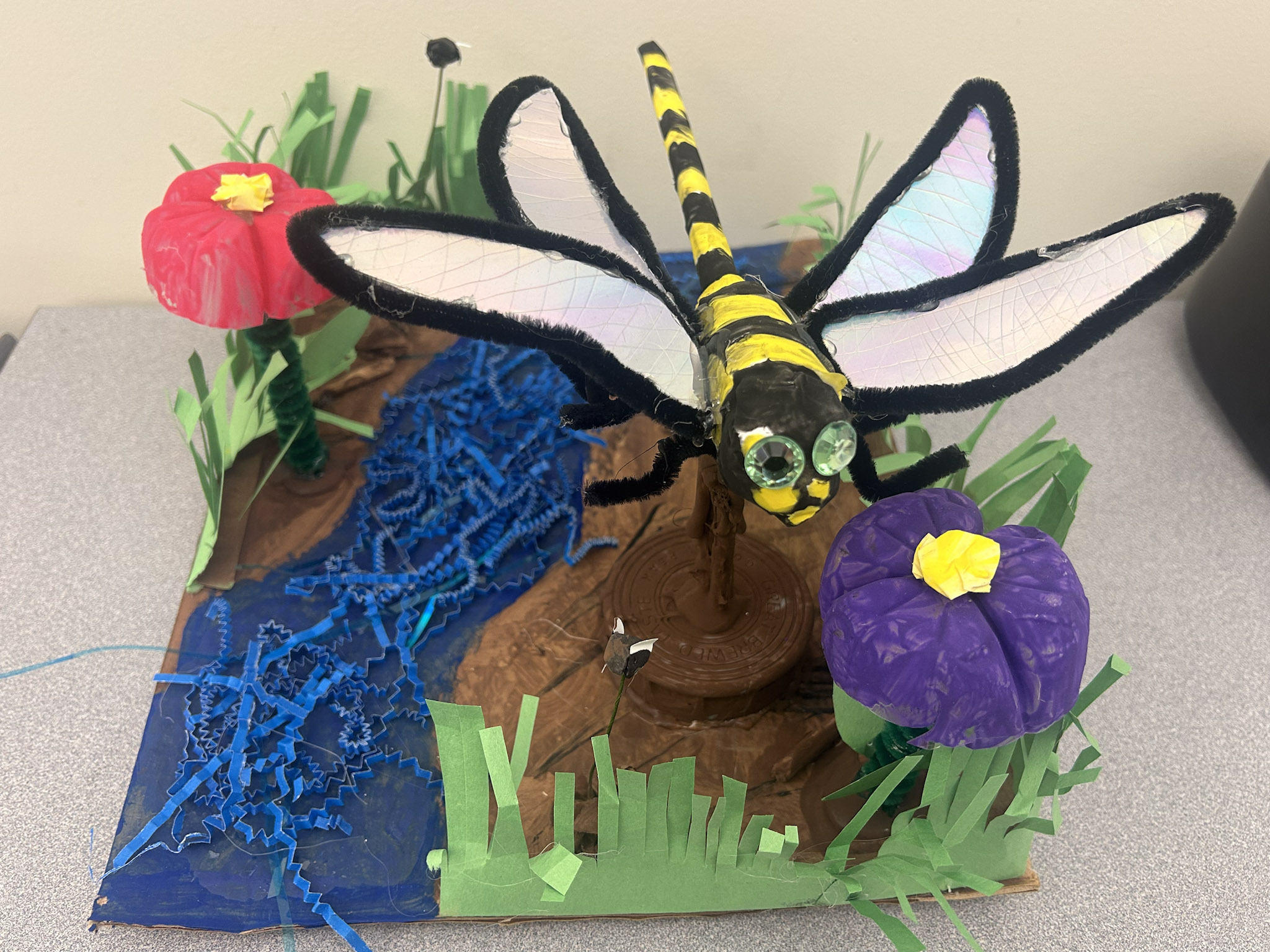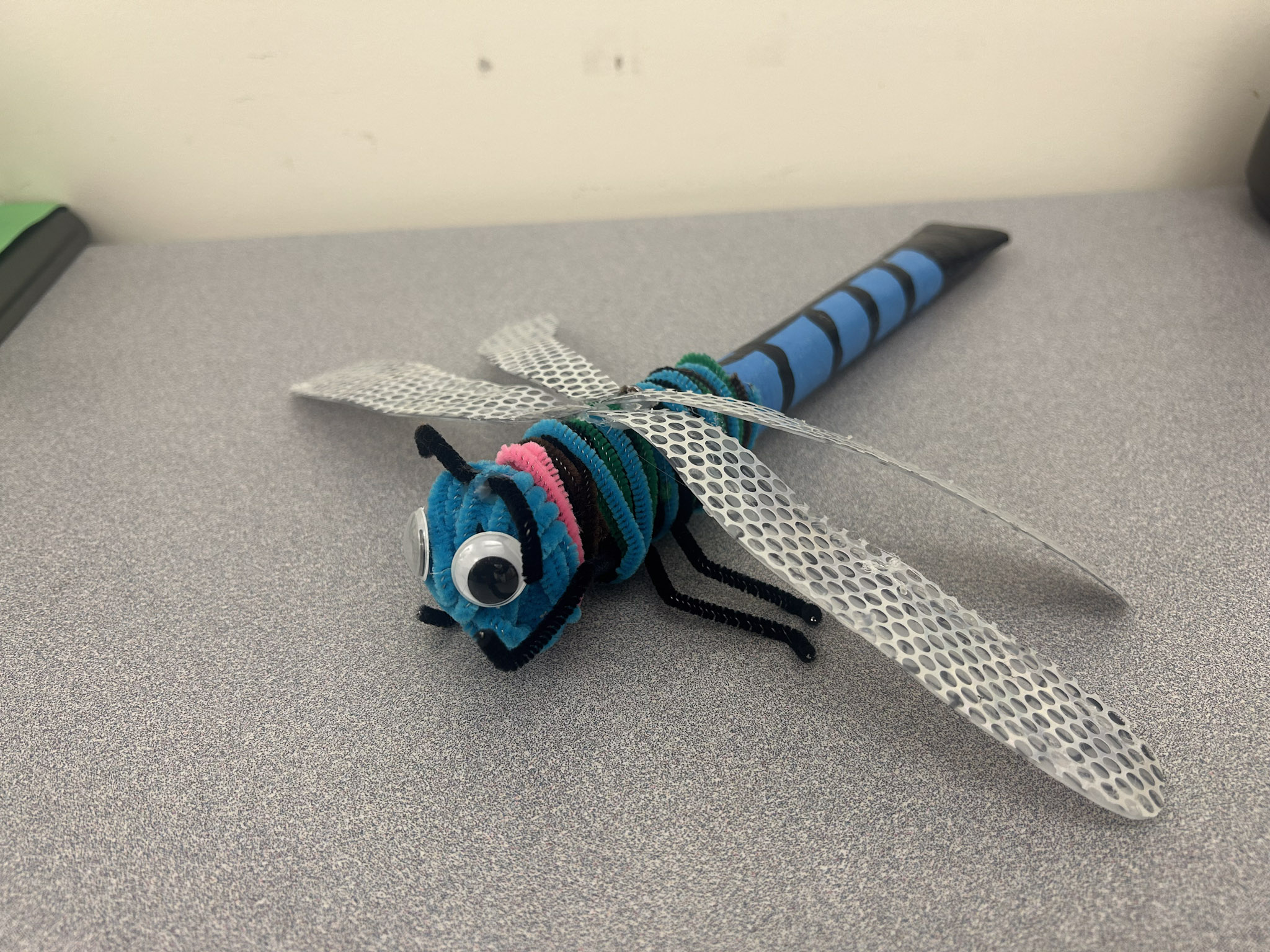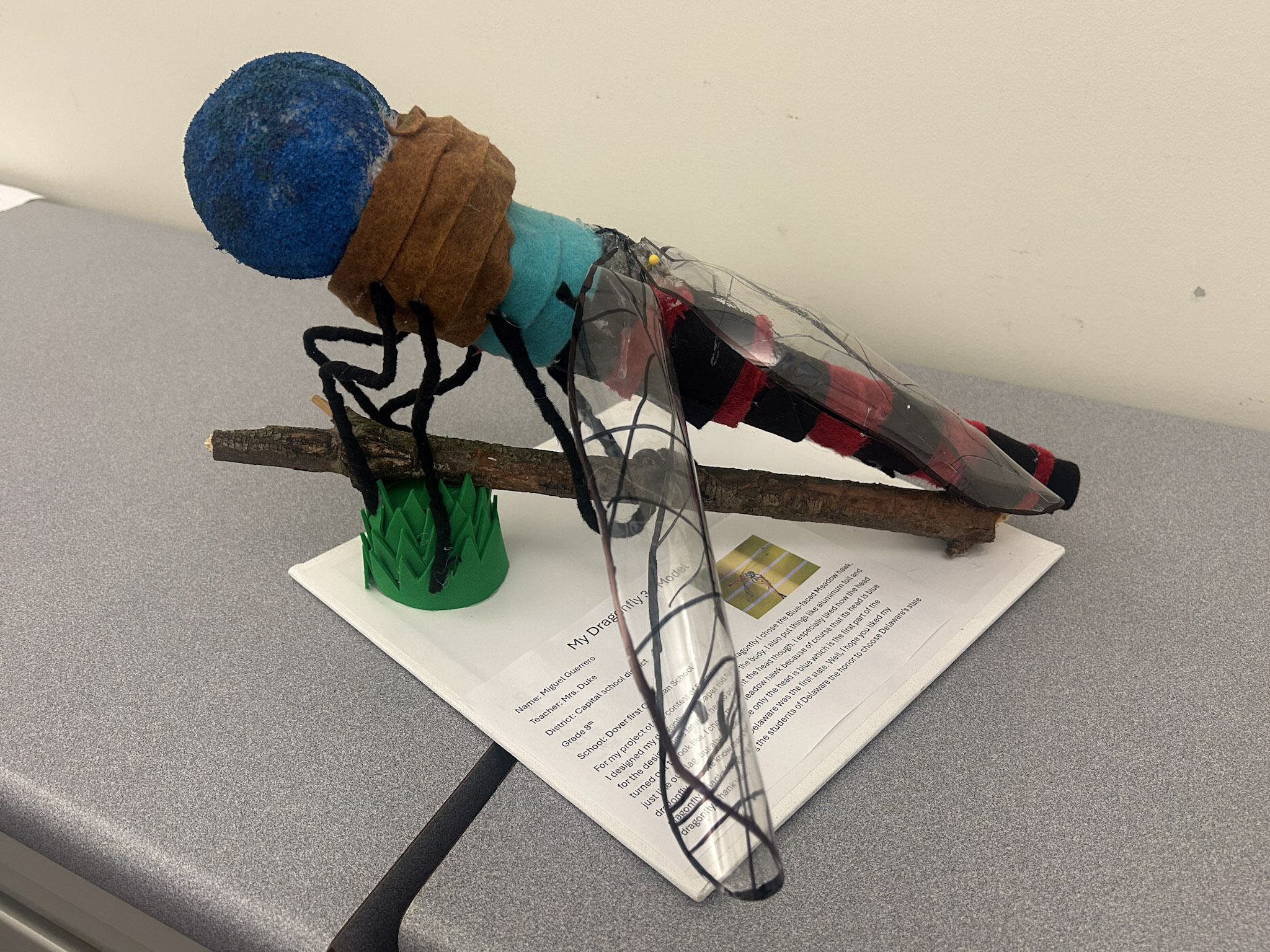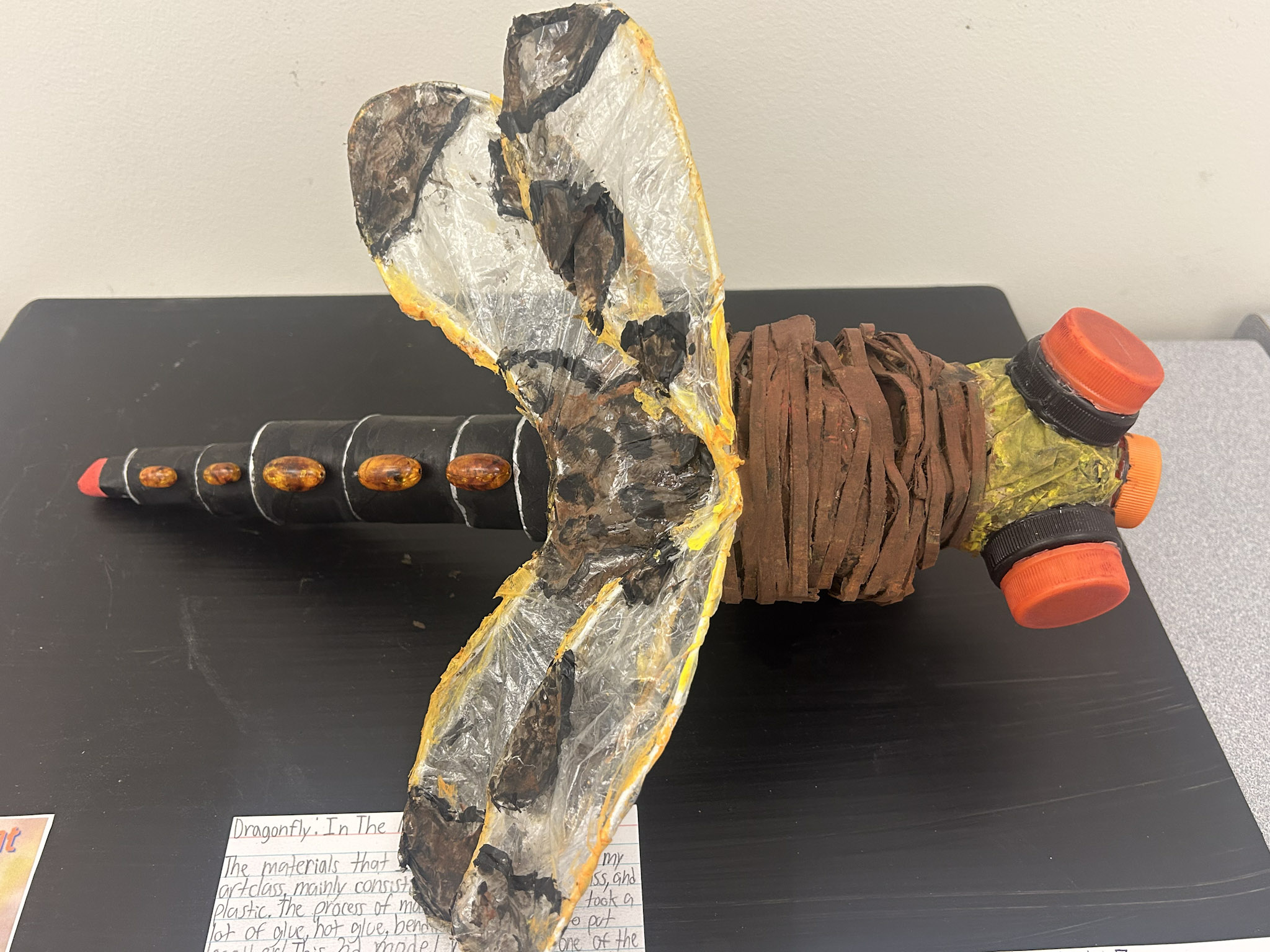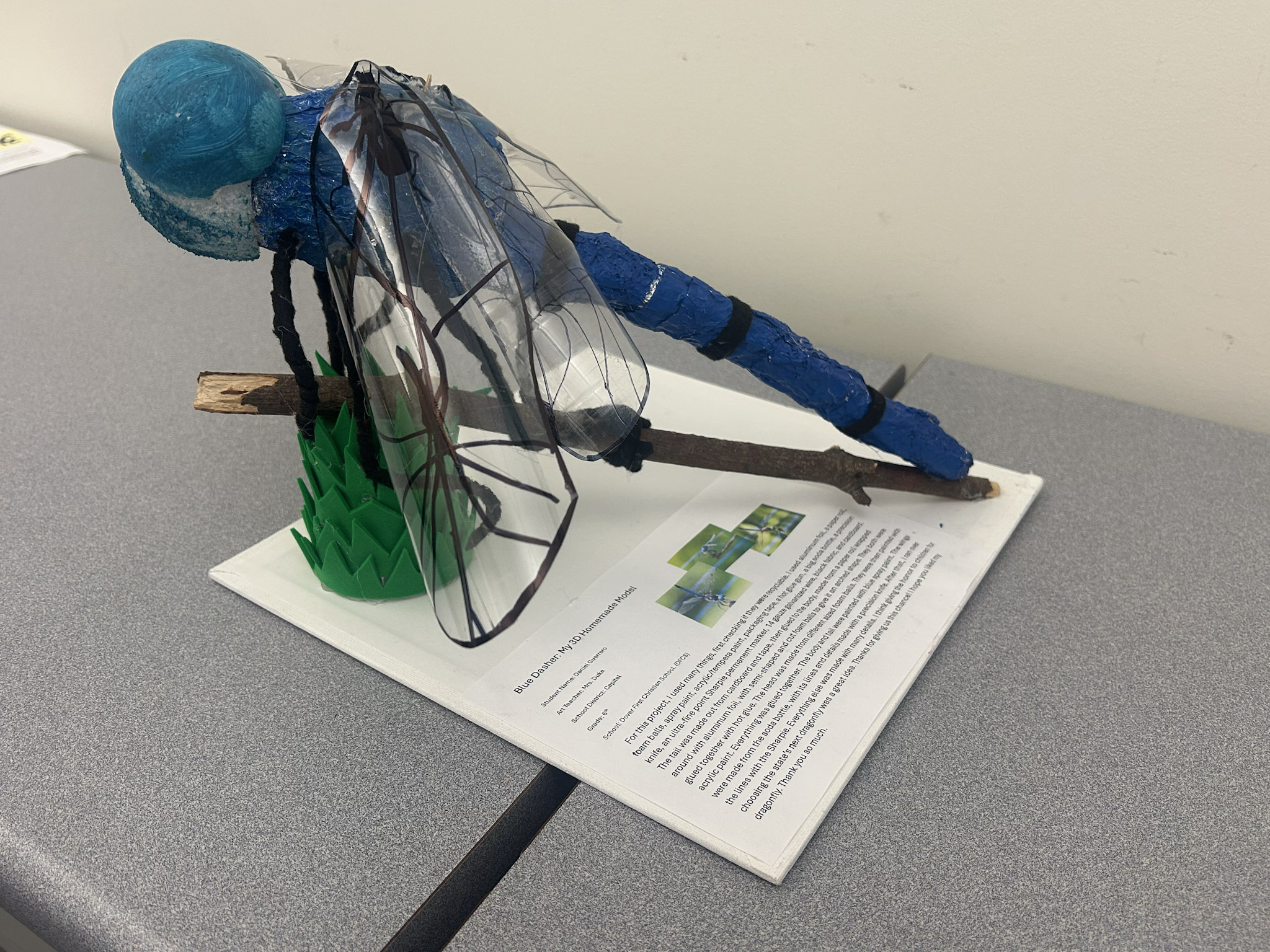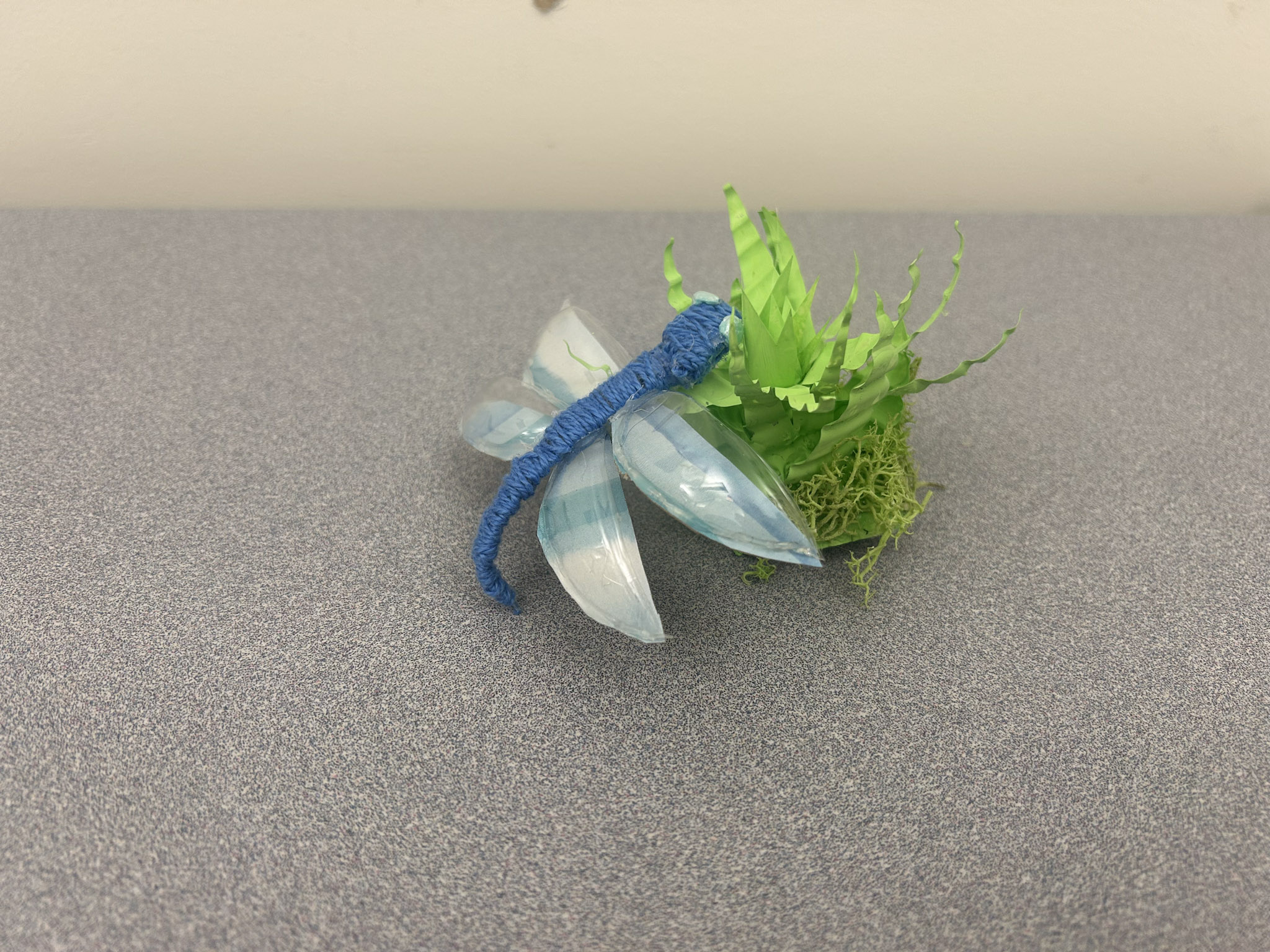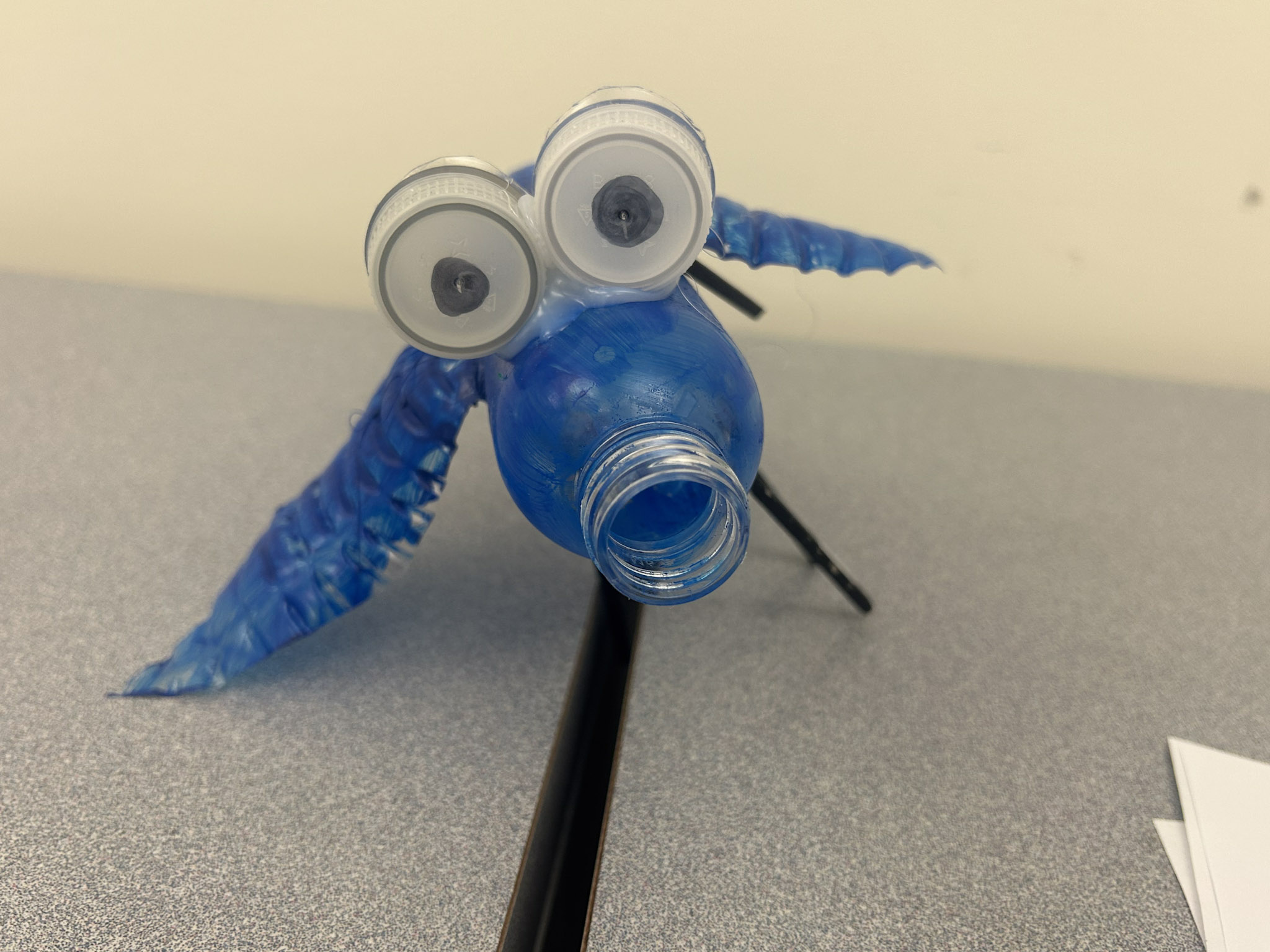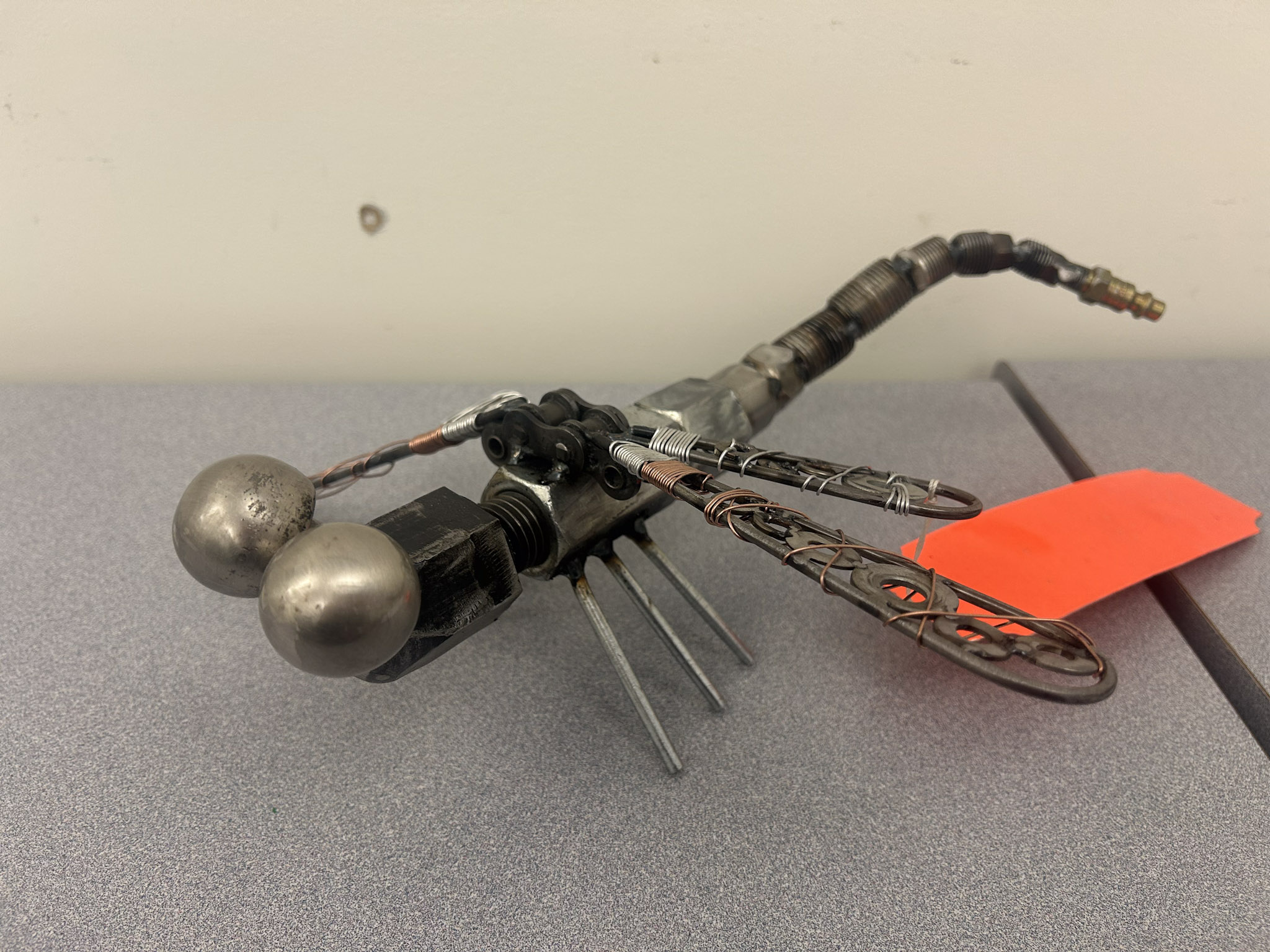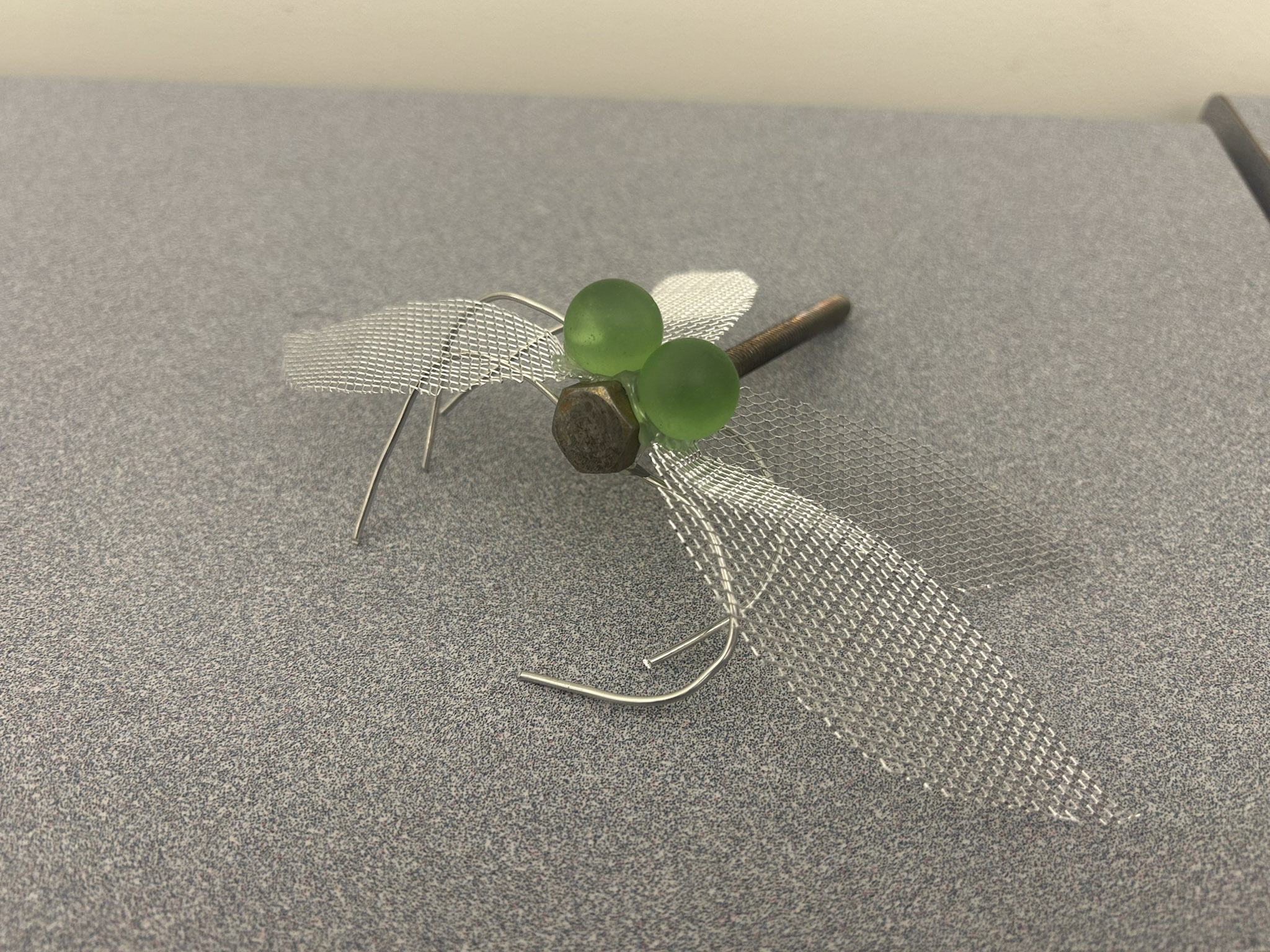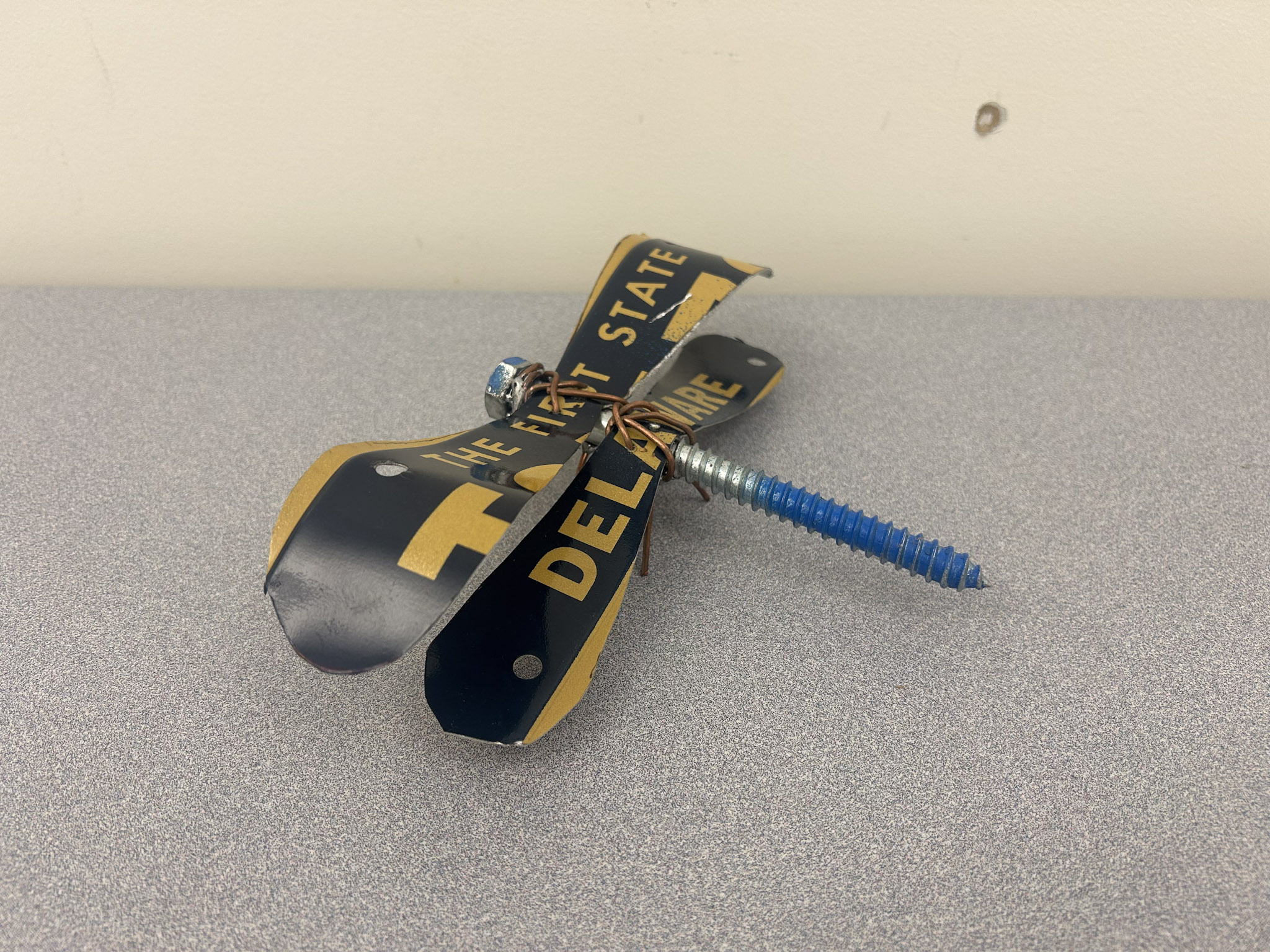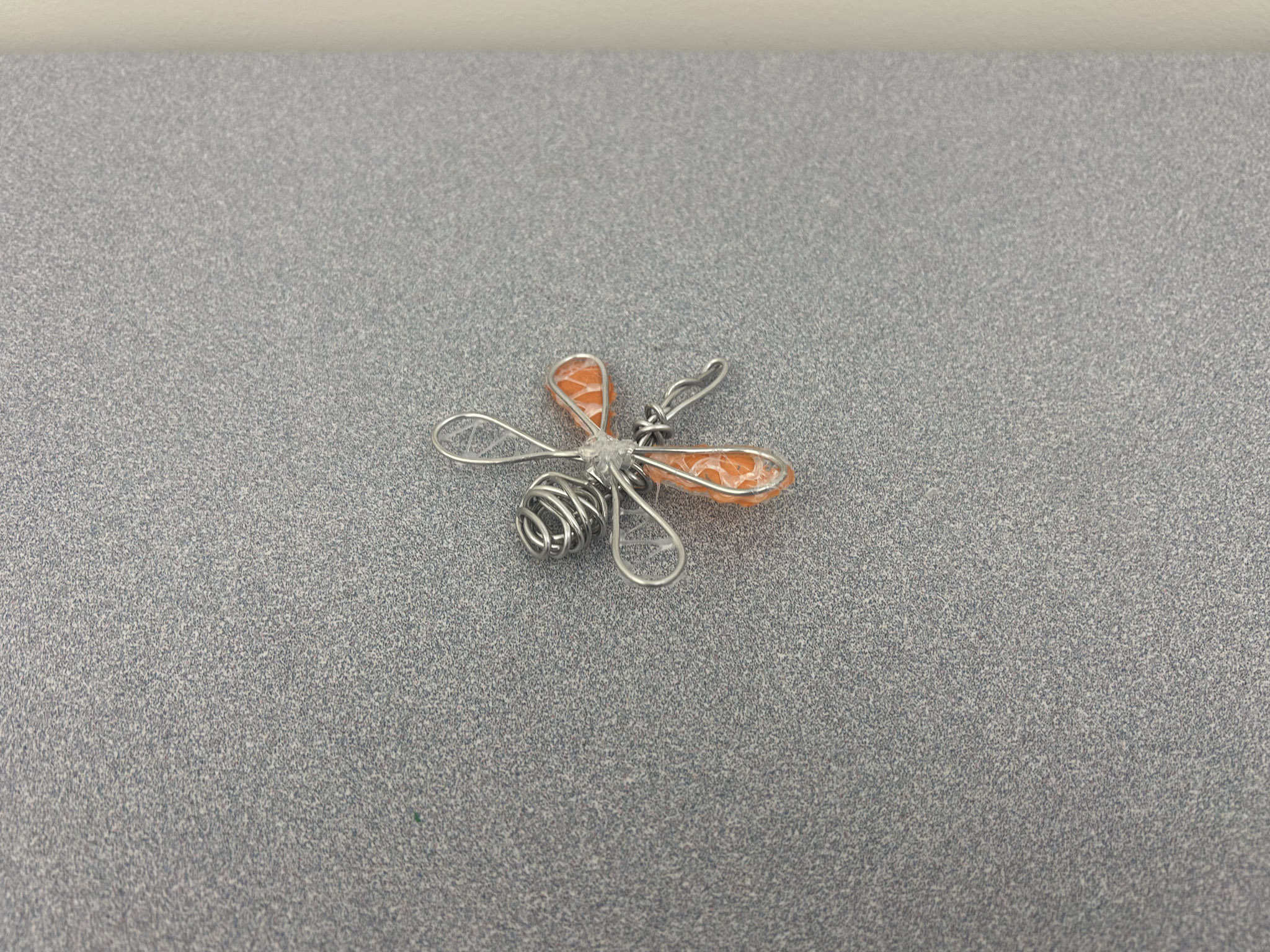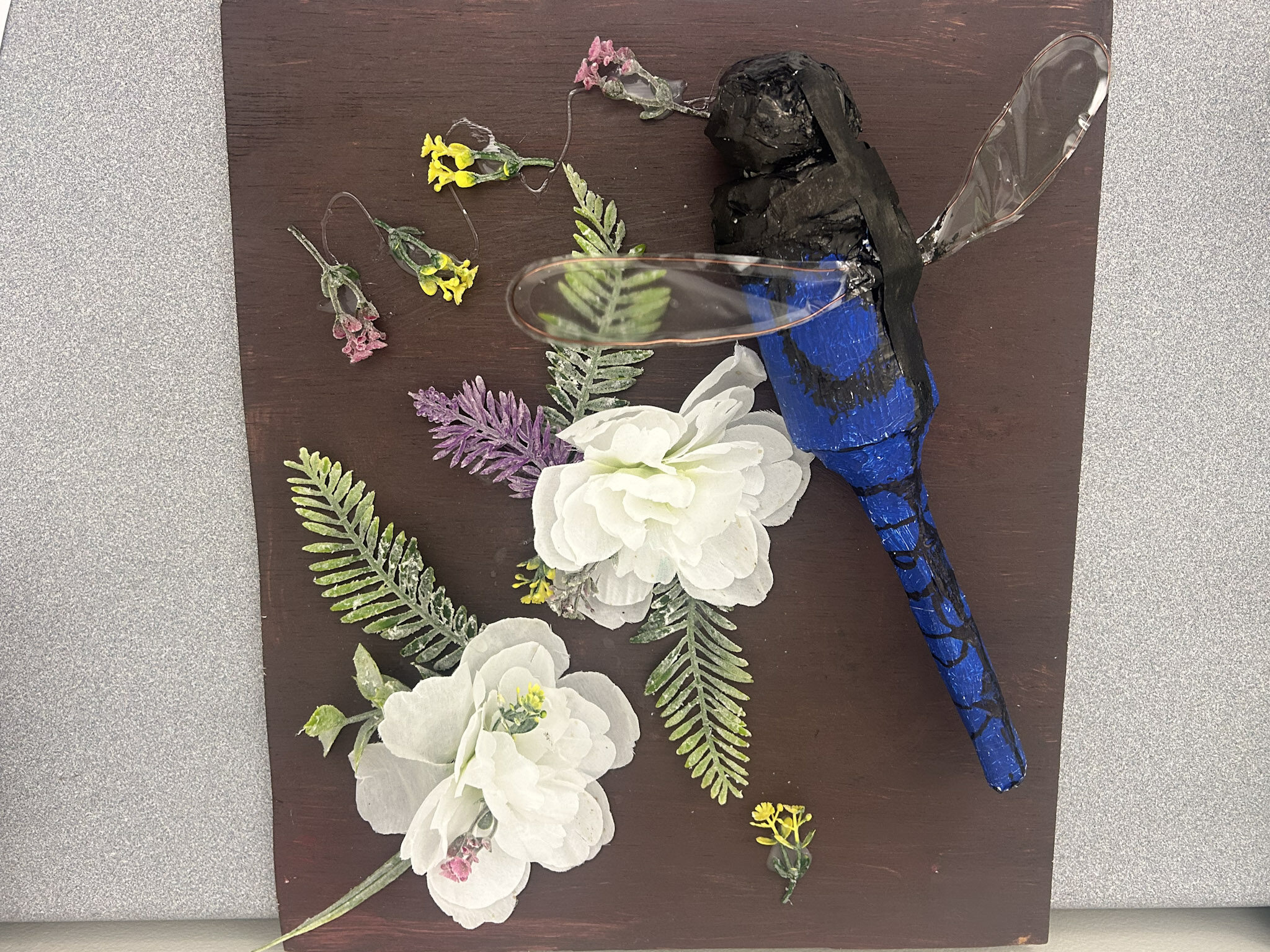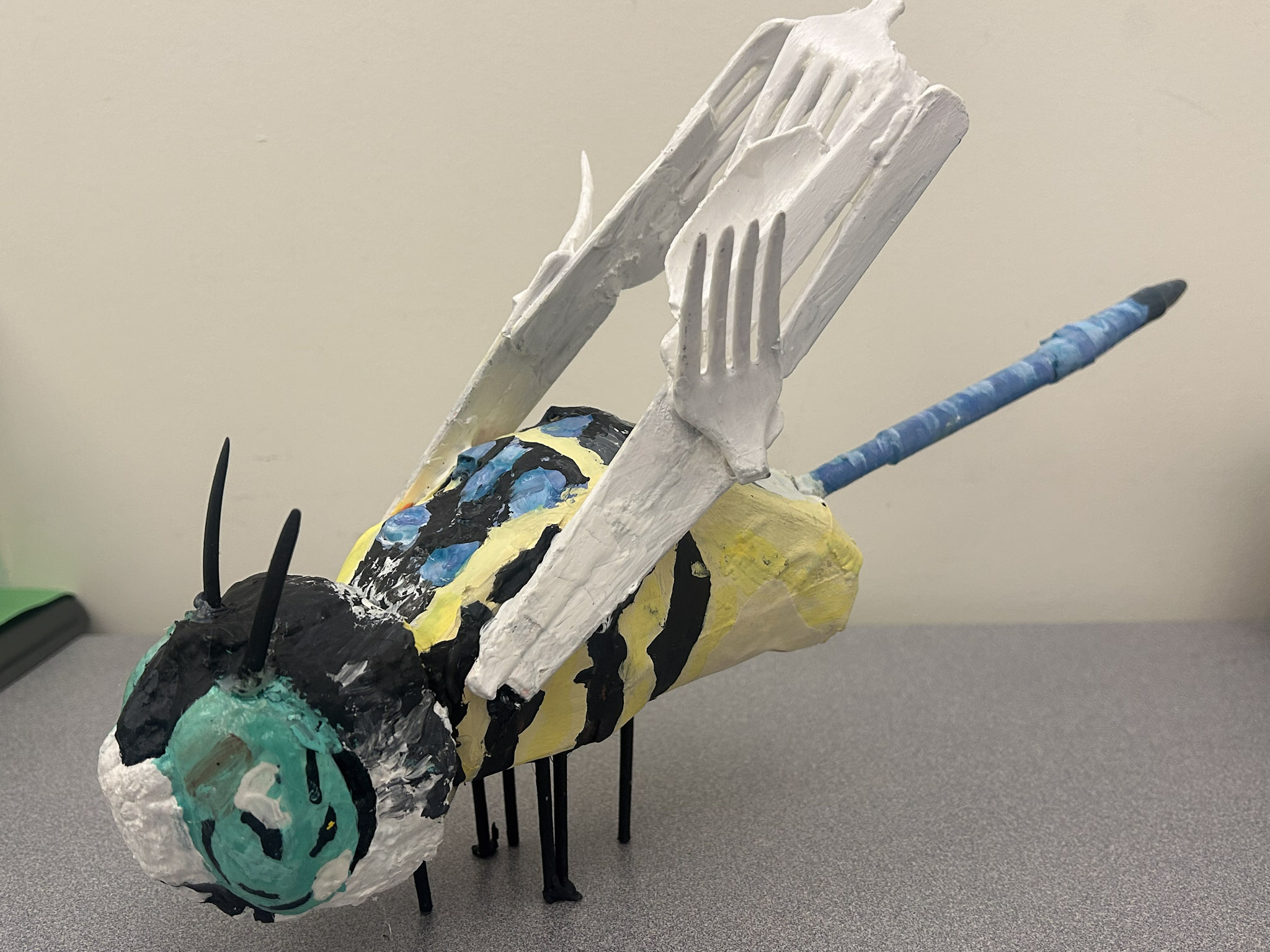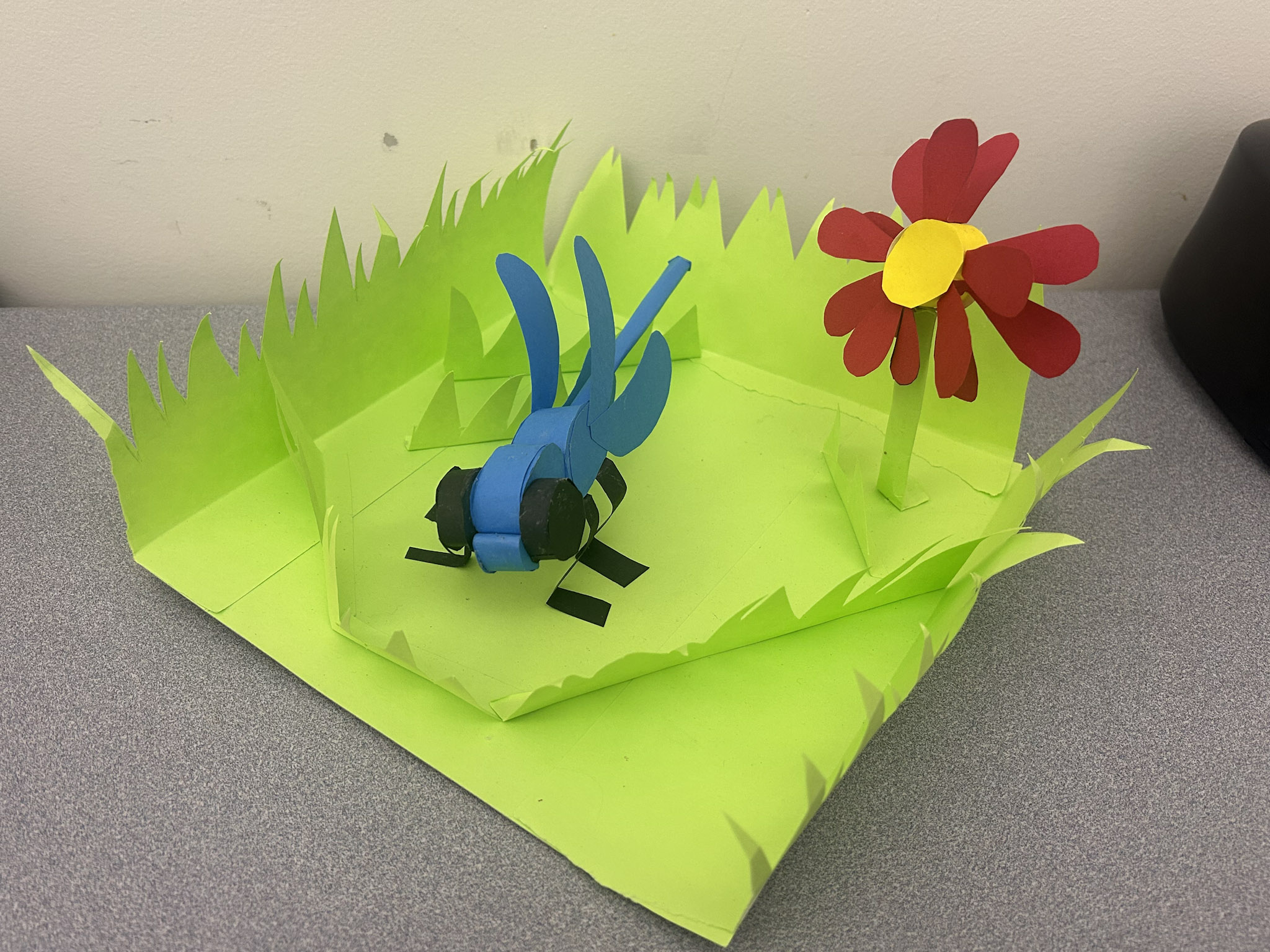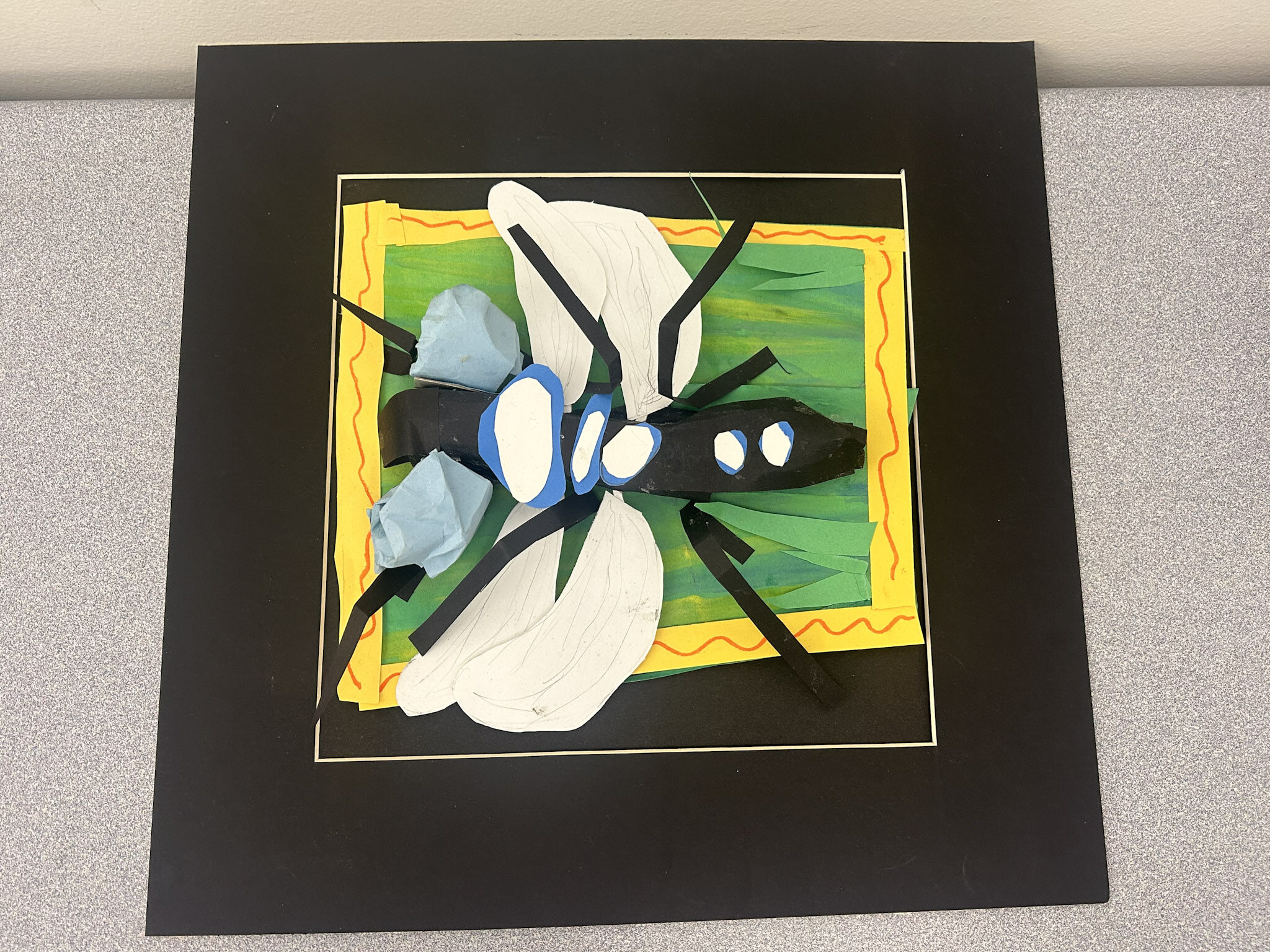The State of Delaware
Dragonfly Project
TEACHER RESOURCES
ELEMENTARY SCHOOL
SECONDARY SCHOOL
ADDITIONAL RESOURCES
THE BLUE DASHER
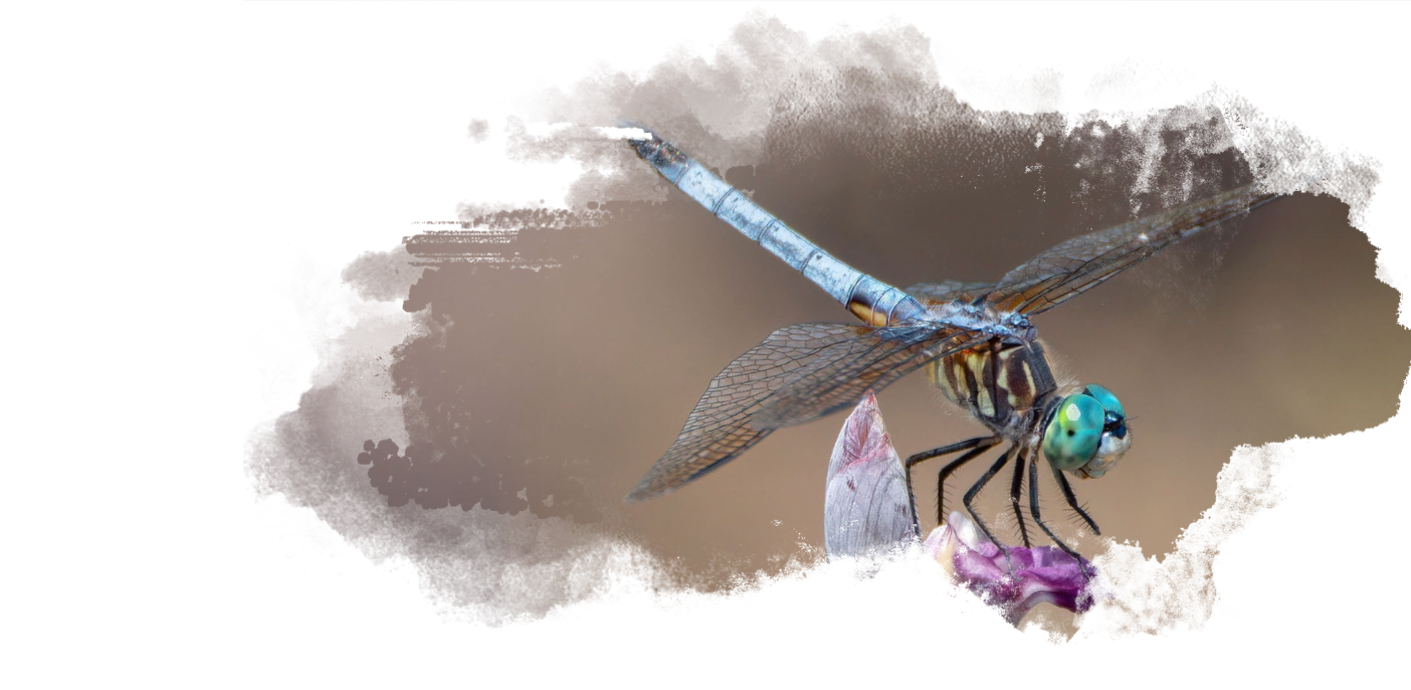
Nominees for the Official Delaware State Dragonfly

Common Green Darner
The Common Green Darner is quite large and conspicious. It eats small flying insects and spends most of the day flying back and forth over water.

Dragonhunter
The Dragonhunter is the largest dragonfly in Delaware. It feeds on large insects, such as butterflies, and lives on large rivers.

Tiger Spiketail
The Tiger Spiketail is an extreme habitat specialist. It is only found in tiny streams and is one of Delaware’s rarest, most localized dragonfly.

Calico Pennant
The Calico Pennant is one of Delware’s most beautiful small dragonfly. It is usually found perched low to the ground waiting for prey to fly by.

Blue-Faced Meadowhawk
The Blue-Faced Meadowhawk is considered one of Delaware’s most beautiful dragonfly. It lives in vernal pools deep in the forest.

Blue Dasher
The Blue Dasher is one of the most common and widespread dragonfly in North America. It is found at almost every body of water.
Additional Resources
What’s the difference?
Dragonflies and Damselflies are both colorful insects that are common in Delaware. They are closely related members of the same Insect Order (Odonata). They are both lay their eggs in water and their larvae hatch and grow up in water. Only the adults are terrestrial. They are both predators for other flying insects.
How do you tell them apart?
Dragonflies are larger and tend to be seen out in the open or flying around more than Damselflies. When Dragonflies perch, they hold their wings perpendicular to their bodies.
Damselflies are smaller, usually around an inch long and very slender, often looking like a flying toothpick. They usually fly low over the surface of the water or stay low in the vegetation. When Damselflies perch, they fold their wings over their backs.
So, the easiest way to tell them apart is how they hold their wings.
Dragonfly Families
Petaltails
Primitive dragonflies that were flying in the time of the dinosaurs. They live in woods and perch on tree trunks where their mottled gray color blends into the bark making them very hard to see.
Darners
Large colorful dragonflies patterned in blue and green. They are usually seen hunting on the wing over fields and ponds. Species of Darners are found from the tropics to above the Arctic Circle and they are common in many places.
Clubtails
Usually found perched on the ground or on low vegetation along streams and rivers. The enlarged tip to the abdomen in most species gives them their name.
Cruisers
Large black and yellow dragonflies which are usually seen flying low (cruising) up and down large rivers and streams, but they often do the same over roads near rivers.
Spiketails
Closely related to cruisers, these large black and yellow dragonflies are usually found on tiny streams in the forest. Females have a spike-like tip at the end of the abdomen that they use to make holes in the mud for their eggs.
Emeralds
Mostly medium to large, dark dragonflies named for their brilliant green eyes. They breed on small streams but are usually seen in flight high over open spaces like fields and forest clearings.
Skimmers
The largest dragonfly family contains most of our typical pond dragonflies. Many are very brightly colored with colored wings. They are usually seen perched along the edge of ponds and lakes but can be found almost anywhere there is clean water.
ART CONTEST WINNERS
Students created a 3D Dragonfly to help celebrate the State Dragonfly Project
Each dragonfly was required to be made from Recyclable Materials and submitted to students’ art teacher.
Congratulations to the Winners of the Dragonfly Art Contest!!
Click the Images to Enlarge
Elementary School Winners:
First Place Kent
Melaina Mendoza
Reilly Brown
Caesar Rodney
Third Place New Castle
Hillary Shen
North Star
Red Clay Cons.
Second Place Kent
Collin Holderman
Reilly Brown
Caesar Rodney
First Place Sussex
Addie Hager
Lord Baltimore
Indian River
Third Place Kent
Carson Holderman
Reilly Brown
Caesar Rodney
Second Place Sussex
Adalee Olajos
Lord Baltimore
Indian River
First Place New Castle
Madison Capra
Bunker Hill
Appoquinimink
Third Place Sussex
Violet Bennett
Lord Baltimore
Indian River
Middle School Winners:
First Place Kent
Miguel Guerrero
First State Christian
FSC
Third Place New Castle
Lauryn Ashley
MOT Charter
MOT
Second Place Kent
Daniel Guerrero
First State Christian
FSC
First Place Sussex
Ryleigh Ortwein
Fred Thomas MS
Cape Henlopen
Third Place Kent
Wyatt Gilson
Campus Community
CCS
Second Place Sussex
Kolt Lyons
Mariner MS
Cape Henlopen
First Place New Castle
Simon Ralston MaCoy
Cab Calloway MS
Red Clay Cons.
Third Place Sussex
Ethan Parks
Beacon MS
Cape Henlopen
High School Winners:
ART CONTEST
Students will create a 3D Dragonfly to help celebrate our new State Dragonfly!
Each dragonfly must be made from Recyclable Materials and submitted to students’ art teacher.
Deadline to enter was April 15, 2025
Open to Students Grades K-12!
WINNERS ARE INVITED TO ATTEND A SPECIAL CEREMONY ON JUNE 20TH AT DELAWARE STATE UNIVERSITY!
ALL WINING PROJECTS WILL BE ON DISPLAY AT THE DELAWARE MUSEUM OF NATURE AND SCIENCE
PRIZES WILL BE AWARDED INCLUDING PARK PASSES, BOOKS, AND MORE!!!
1ST, 2ND, AND 3RD PLACEWINNERS WILL BE CHOSEN FOREACH GRADE LEVEL; ELEMENTARY, MIDDLE, AND HIGH FOR EACH COUNTY.
ESSAY CONTEST WINNERS
Winning essays will be displayed at the Delaware Museum of Nature and Science and online.
Congratulations to the Winners of the Dragonfly Essay Contest!!
Click the ‘Essay Link’ to see the winning essays
Elementary School Winning Essay
First Place:
Sophia Najemy
Claymont Elementary School, 5th Grad
Brandywine School District
Essay Link
Middle School Winning Essays
First Place
Isabella Esposito
Beacon Middle School
Cape Henelopen
Essay Link
Second Place
Damian Burns
Beacon Middle School
Cape Henelopen
Essay Link
Third Place (Tie)
Robyn Anadu
Beacon Middle School
Cape Henelopen
Essay Link
Saanvi Sihi
Odyssey Charter School
Essay Link
High School Winning Essays
First Place
Meile Garrett
Sussex Technical School
Sussex County Vocational Technical
Essay Link
Second Place
Francesca Joella
Homeschool
Essay Link
Third Place
Kira Dahl
Sussex Technical School
Sussex County Vocational Technical
Essay Link

Due date: April 15, 2025
Questions and essays can be submitted to:
Carrie Evick
DOE science Education Associate
carrie.evick@doe.k12.de.us
ESSAY CONTEST
Delaware is looking for its official state dragonfly, and we need YOUR help to choose it!
Calling ALL students:
Get creative, gather some research, and make your case! Whether it’s the dragonfly’s beauty, role in the ecosystem, or something totally unique—tell us why it deserves the title of Delaware’s state dragonfly!
Prizes awarded for winners at all grade level.
Winning essays will be displayed at the Delaware Museum of Nature and Science and online.
ELEMENTARY SCHOOL
Requirements: Students must write up to a 150-word essay (double spaced, 12pt font, sources) on why one of these six native Delaware species should be named Delaware’s Dragonfly.
MIDDLE SCHOOL
Requirements: Students must write up to a 300-word essay (double spaced, 12pt font, works cited) on why one of the six native Delaware species should be named Delaware’s Dragonfly.
HIGH SCHOOL
Requirements: Students must write up to a 500-word essay (double spaced, 12pt font, works cited) on why one of these six native Delaware species should be named Delaware’s Dragonfly.

The Dragonfly Project is hosted on Delaware Naturally, a website based on a citizen focused effort of the Delaware Native Species Commission (DNSC).

